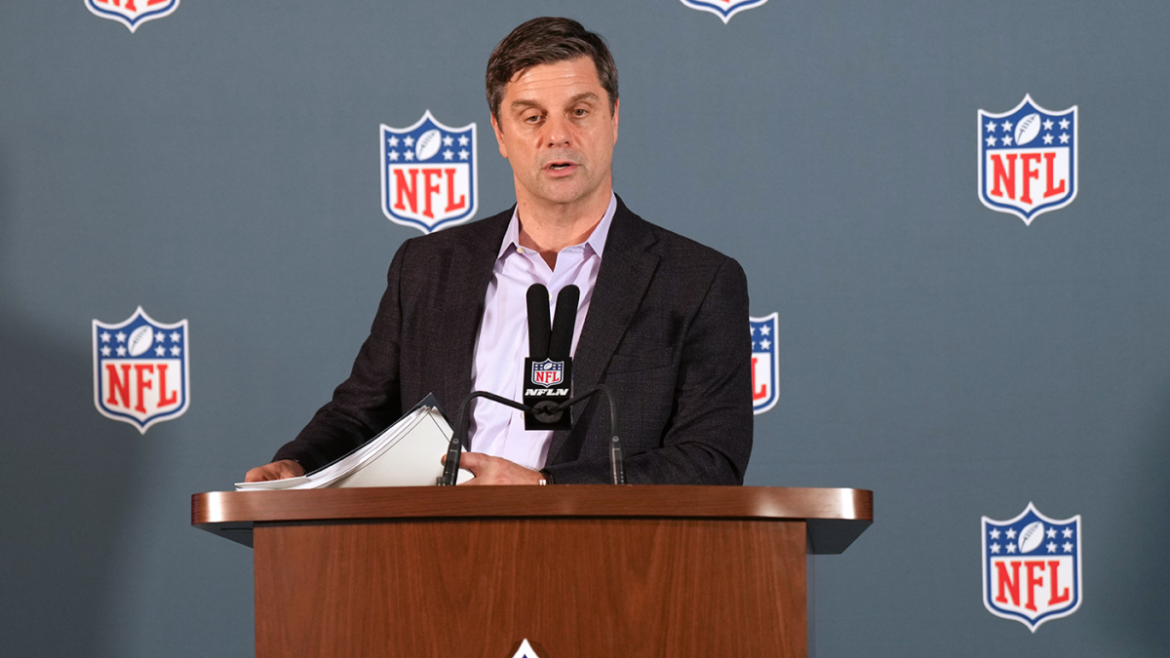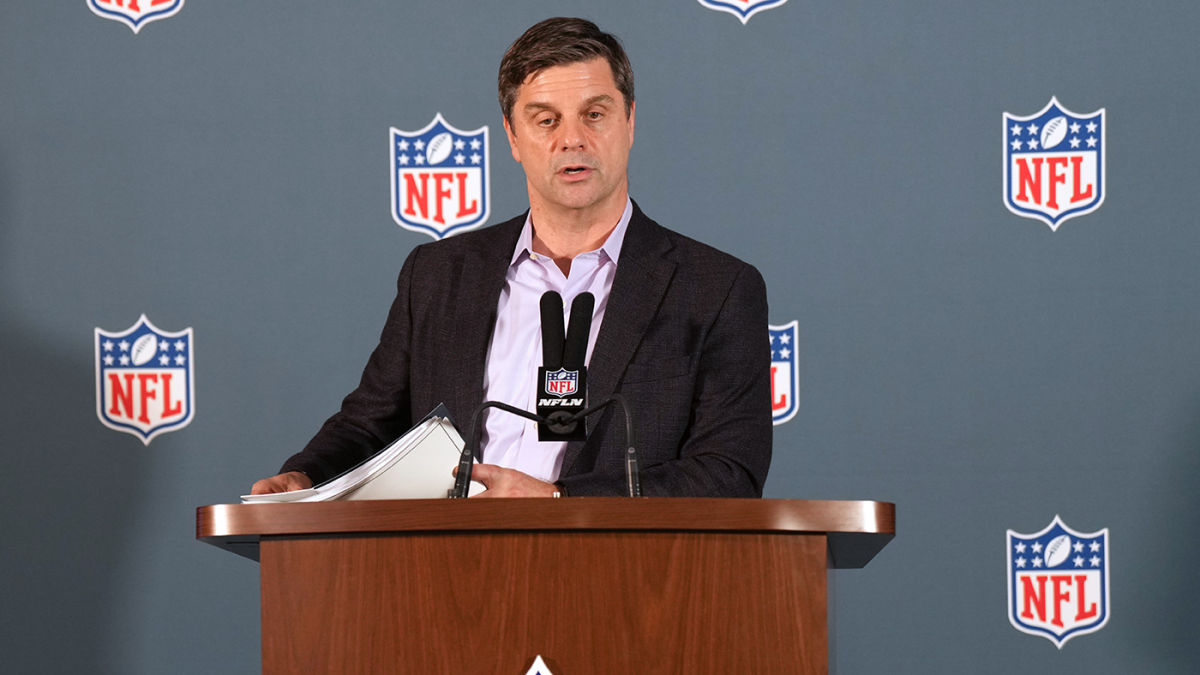Brian Rolapp’s transition from a longstanding NFL executive to the new CEO of the PGA Tour marks one of the most significant leadership moves in the sports industry in recent years. After a remarkable 22-year tenure at the NFL, where he held the role of executive vice president overseeing media and business operations, Rolapp emerges as a pivotal figure poised to reshape the landscape of professional golf. This report explores the context, implications, and leadership dynamics surrounding Rolapp’s appointment as the PGA Tour’s first-ever CEO.
Context of the Leadership Shift
The PGA Tour initiated its search for a CEO in early 2024, seeking an external leader who could effectively manage the increasingly complex commercial and media facets of the sport. Traditionally, the Tour had operated under a commissioner’s leadership without a designated CEO role, but the evolving industry demands, including media rights negotiations, sponsorship expansions, and corporate partnerships, necessitated a dedicated executive position.
Brian Rolapp quickly surfaced as the frontrunner amid a competitive shortlist that included notable candidates such as NASCAR commissioner Steve Phelps, TaylorMade Golf CEO David Abeles, and Jared Smith, former Ticketmaster chairman. His extensive experience at the NFL, particularly his success in spearheading innovative media deals with major broadcasters and digital platforms like Amazon, YouTube, Google, and Netflix, positioned him uniquely to lead the PGA Tour’s commercial evolution.
Rolapp’s NFL Legacy and Skill Set
Rolapp’s 22-year career at the NFL is distinguished by strategic foresight and adept navigation of media landscapes. As the league’s chief media and business officer, he expanded the NFL’s reach beyond traditional television, ushering the league into the digital era through cutting-edge media partnerships. Highlights of his leadership include securing multi-billion dollar broadcasting contracts and innovating league-wide media strategies during a time when streaming and digital content became paramount.
Within the NFL environment, Rolapp was frequently regarded as a potential successor to Commissioner Roger Goodell due to his deep institutional knowledge, relationship-building skills with team executives, and capacity to innovate on revenue generation. His departure is noted by league insiders as a significant loss but is understood as a natural progression for a leader seeking to take on a broader executive operational role.
Challenges and Opportunities at the PGA Tour
The PGA Tour operates at a crossroads of tradition and modernization, balancing the rich heritage of professional golf with evolving commercial realities. The Tour has faced headwinds, including competition from rival leagues and shifting consumer behavior toward sports consumption. Hiring Rolapp reflects a deliberate strategy to leverage his media expertise and leadership acumen to tackle these challenges head-on.
Key opportunities for Rolapp include:
– Media Rights Expansion: With the rights to golf tournaments becoming more valuable and complex due to digital platforms, his experience in negotiating and managing broadcast agreements is critical.
– Global Brand Growth: The PGA Tour seeks to expand its global footprint, aligning with major sponsors and tapping into emerging markets.
– Fan Engagement Innovation: As viewer preferences change, Rolapp’s experience with digital content delivery can enhance fan experiences and engagement through innovative platforms.
– Organizational Modernization: Leading the Tour’s for-profit entity, likely termed “PGA Tour Enterprises,” Rolapp will be tasked with building a corporate structure that supports strategic growth and operational efficiency.
Coordinating closely with Commissioner Jay Monahan, who remains the sport’s figurehead and public voice, Rolapp’s role chiefly centers on commercial execution, media strategy, and business development. This dual leadership model positions the Tour to maximize expertise in both governance and operational performance.
Industry and Peer Comparisons
Rolapp’s move also mirrors broader industry trends where seasoned sports media executives transition into CEO roles to bridge gaps between sports operations and media monetization. Similar movements have been witnessed in leagues where digital rights and sponsorship dynamics drive unprecedented revenue streams.
His appointment suggests a shift in the PGA Tour’s priorities, emphasizing media savvy and business growth. Compared to candidates like Steve Phelps, with deep motorsport governance experience, or David Abeles from golf equipment manufacturing, Rolapp’s media and rights negotiation credentials place him at the nexus of sport and entertainment business.
Potential Impact on the Golfing World
Rolapp’s arrival signals a new era for the PGA Tour:
– Media Landscape Transformation: Expect aggressive pursuit of innovative broadcast and streaming deals, potentially leveraging partnerships with tech giants and emerging platforms.
– Competitive Positioning: A sharper commercial focus could strengthen the Tour’s ability to compete with alternative tours and leagues.
– Fan Base Diversification: Targeted digital engagement strategies may bring younger and international audiences closer to golf.
– Financial Growth: New revenue streams and partnerships under Rolapp’s leadership could boost prize money, player benefits, and developmental programs.
Conclusion: A Landmark Leadership Appointment
Brian Rolapp’s selection as the PGA Tour’s inaugural CEO encapsulates a broader narrative of sports executives evolving to meet the demands of a rapidly changing industry. His distinguished NFL career, marked by media innovation and strategic business leadership, equips him with the tools necessary to elevate the PGA Tour’s commercial potential and modernize its operations.
This transition not only marks a professional milestone for Rolapp but also signals PGA Tour’s determination to sharpen its competitive edge amid an increasingly crowded sports marketplace. As he begins his tenure, the golfing world will watch keenly to see how his NFL-honed expertise translates to golf’s unique ecosystem, potentially ushering in an era of dynamic growth and strategic innovation.





